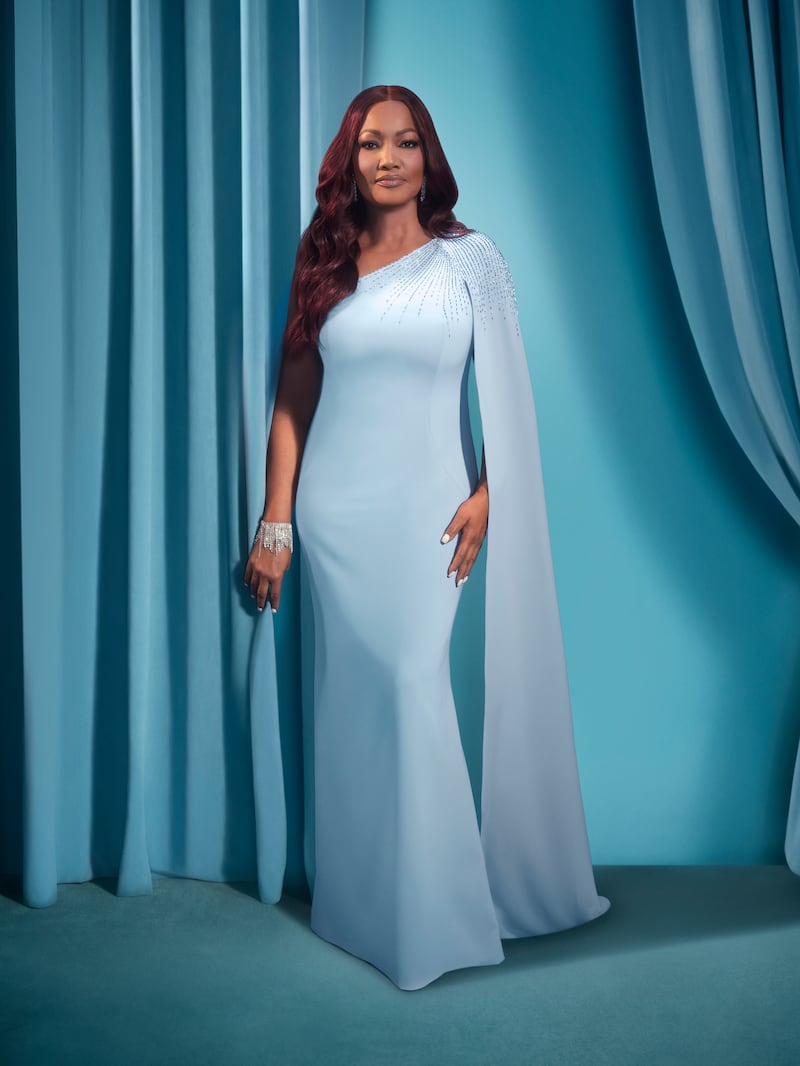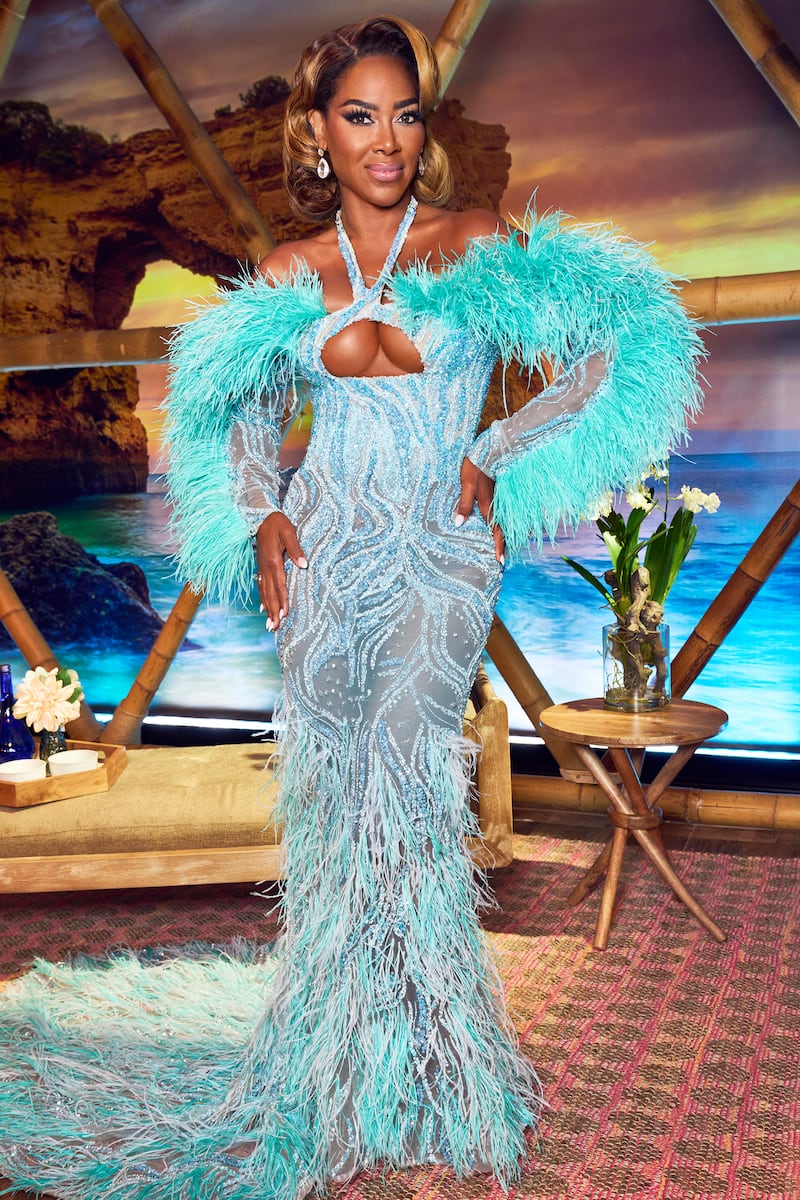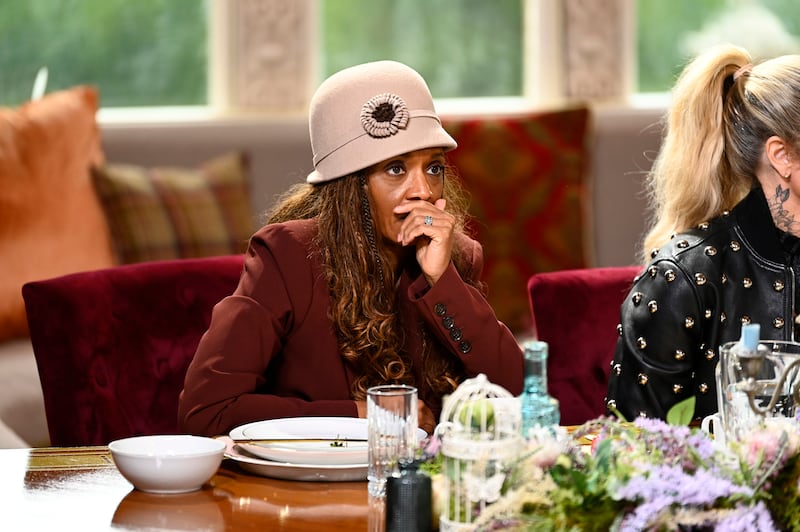Since the dawn of reality television, audiences and editors have engaged in an endless tug of war. Where is the line that actions go from captivating to revolting? At which point does airing something become an endorsement of certain behavior? And when do villains stop being love-to-hate, and just become straight-up despised?
In the modern age, where social media rules all and the line between salacious and sickening gets ever-blurred, how much drama can reality fans handle?
These are the scandals blowing fans’ minds.
Garcelle Beauvais Exits The Real Housewives of Beverly Hills
Garcelle Beauvais has occupied an interesting lane on The Real Housewives of Beverly Hills since joining the show in Season 10, fresh off the departure of former matriarch Lisa Vanderpump. She was an immediate breath of fresh air, but always existed just outside the hierarchy, never quite able to infiltrate the impenetrable clique RHOBH has become known for.
Beauvais quickly became the voice of the fans, asking questions her castmates wouldn’t dare. Did Lisa Rinna worsen her daughter’s bodily issues with provocative dancing videos? What did Erika Jayne know about her estranged husband’s crimes? Is Kyle Richards an undercover lesbian?
Toeing the line between audience surrogate and Real Housewife, Beauvais managed to captivate audiences while cementing herself as a staple of the show, befriending the eclectically outspoken Sutton Stracke while her frenemy dynamic with Richards and Jayne kept her in the thick of the drama.
That all blew up at the most recent reunion, where Beauvais’ confessional comments and side remarks left her on an island of her own, as Jayne, Richards, Dorit Kemsley, and Bozoma St. John whacked her from different sides. It all hit a point of no return when Beauvais doubled down on her accusation that Kemsley’s traumatic robbery was faked and/or planned, offering bland platitudes in the face of an apology.
Despite crashing out on a villainous high, Beauvais was immediately martyred by fans whose hatred for RHOBH is only outweighed by their inability to turn off the television.
The fall-out has been a lot deadlier than the reunion itself, which was a mostly milquetoast outing that Beauvais didn’t even “storm off” from until the final minute, despite all the hubbub. Beauvais unfollowed the entire full-time cast—including bestie Stracke—and quit the show before the reunion even aired, sending a bat-signal to the fanbase that it’s time to cut all ties with civility.
Suddenly, tweets were analyzing Beauvais’ facial expression in cast photos, former favorite Stracke became a complete pariah, and odes to Beauvais poured out on Reddit. If you took a quick look at the casts’ comment sections on Instagram, you might think they stabbed Beauvais with several knives before sending her body out to sea. As the pendulum swung all the way in one direction, others asked: Are the fans ruining Bravo?

When did reunion gang-ups become an issue of morality? Somewhere between the Teresa Giudice Christmas pageant dress debacle and today, the Real Housewives stopped being a place to watch awful women do evil things, and became a place to relitigate high school mean girl behavior.
It’s a phenomenon we’re no stranger to, one that has hit an impasse. RHOBH is the highest rated Housewives series, often adopting a more casual fanbase, one just as sensitive as the passive, barely provocative cast itself. After Season 9, fans declared they’d quit in the name of Vanderpump, while Denise Richards garnered similar fanfare with her Season 10 departure, despite ratings not reflecting such a reality.
The real question is: Will this time be any different? Only time will tell. If there’s one thing we know, it’s that the only thing reality fans love more than complaining is a good old hate watch.
Kenya Moore’s Real Housewives of Atlanta Revenge Porn Scandal
The Real Housewives franchise has seen it all: cancer scams, fashion show brawls, domestic abuse scandals, and even the horrors of a woman eating the bow off another’s cake. But even after 100 seasons of utter chaos, these career creatives always find a way to up the ante.
Perhaps the quintessential Housewives villain, Kenya Moore has gone through many ups and downs with viewers and her castmates, finally landing in a sweet spot of favorability right as The Real Housewives of Atlanta rebooted. It was set to be a beautiful season—until she launched a sordid attack on castmate Brit Eady, unveiling sexually explicit photos at Moore’s own hair salon, losing her best friend, job, and fan favor in one fell swoop.
And it seemed no one was pleased in the aftermath. While Moore fans—and the former Housewife herself—looked to call out the network for an apparent double standard, others questioned why the scene made it to air at all. Further complicating matters, the scene aired just a week after Eady ended up in hot water, having scuffled with Moore to the point she left a dinner muttering a diatribe about owning “whips, pistols, everything.”

Although Bravo performed an investigation that found Eady has no pistols in her possession—and fans resurfaced a clip of Moore “threatening” co-star Phaedra Parks in a similar manner—Moore fans insist that Eady deserved to be fired, at minimum. Moore took to YouTube to release some “confessionals” of her own, titled “The Confessional They Tried to Silence” (Bravo chose not to air any of Moore’s confessionals for the season).
The simple truth is it’s one huge kerfuffle, and the can of worms has spilled everywhere, leaving everyone feeling a dirty mess. Even as Bravo blurred some images—and opted not to air others entirely due to their explicit nature—the scandal has landed the network in hot water with fans from all sides of the aisle.
It’s a question viewers often wrestle with in our pearl-clutching world: is depiction an endorsement? Does Mike White support incest because he wrote it into The White Lotus? Does Sean Baker love using slurs because Ani used one in Anora? Does every TV show need a big banner making clear that, just because something’s on your screen doesn’t mean it’s morally right, nor does it mean anyone agrees with it.
Between a rock and a hard place, RHOA has limped past the season’s big scandal with a depleted fanbase and an iconic Housewife on the outs. Maybe Moore’s actions would’ve gone by unscathed a decade ago. Maybe we’re in a new reality, one where you can’t send your daughter to fat camp while bubbly music plays in the background, as Jill Zarin did on Season 1 of The Real Housewives of New York City. Maybe the concept of “I would never do that, but gosh, it made good TV!” is simply outdated.
Danielle Reyes Terrorizes The Traitors—And Its Audience
The Traitors has fast become reality TV’s biggest sensation, rehabilitating the genre’s greatest stars while introducing the world to the exciting, lawless land of post-reality TV. But, in a tale as old as time, The Traitors has proven the only thing reality fans love more than a meteoric rise is a destructive fall.
After iconic Big Brother contestant Dan Gheesling flailed in the Traitors turret, fellow Big Brother legend Danielle Reyes was given a chance to redeem the franchise—only to end up the most hated contestant in the castle’s history.
While Reyes made it all the way to the finale, fans turned on her as soon as her erratic behavior put beloved Survivor contestant Carolyn Wiger in the hot seat, while her dramatics caught the ire of audiences.
Reyes and Wiger’s feud exploded in a plethora of ways, giving viewers a taste of Traitor on Traitor bloodshed, and things went from bad to catatonic when Reyes slammed Wiger, even calling her “Forrest Gump.” When post-season interviews revealed that Reyes swore on her grandchildren to convince her fellow contestants she’s a Faithful, all hell broke loose in the fanbase.
Crossing the line from love-to-hate to can’t-f-ing-stand, Reyes tested the bounds of how far a villain can go in this modern era. Decades removed from a social media-less world where The Bachelor and Big Brother villains could run loose without fear of consequence, the viewers are now active participants in the shows they watch. With that, the barometer for what’s acceptable is ever-changing, and the backlash that was once condensed to the water cooler can easily balloon out of control.

Have we reached a time where villains can’t be irredeemably awful? Or is a cataclysmic backlash the only way to gauge if viewers are even interested? After all, in the world of reality TV, The only thing worse than everyone hating you is no one saying anything at all.
Even as shows like The Real Housewives of Salt Lake City and The Valley prove reality audiences still enjoy a healthy serving of psychosis from time to time, the “reality” where Flavor of Love, Celebrity Rehab, and even Dance Moms could thrive has almost entirely dissipated.
Across the many aisles of reality TV, fans are finding their limit, the once-escapist genre now plagued by an increasingly online—and increasingly angry—audience. Has reality TV finally reached its tipping point?
The post These Salacious Reality TV Scandals Are Testing Fans’ Limits appeared first on The Daily Beast.




